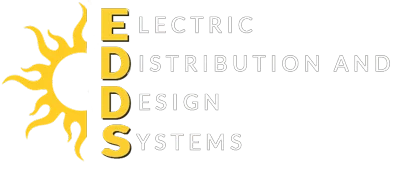Solar power is rapidly emerging as a key source of future energy. With more homeowners and businesses adopting solar panels, one critical question arises: what happens when the sun goes down? This is where solar batteries become essential.
At Electric Distribution and Design Systems, we help families and businesses unlock the full potential of solar energy by pairing panels with advanced battery storage solutions. In this article, we’ll explain how solar batteries work, how they store energy, and most importantly, how they can help you save money while gaining energy independence.
What Are Solar Batteries?
A solar battery stores the surplus energy produced by your solar panels throughout the day. Instead of sending unused energy back to the grid, the battery saves it for later use—such as at night, during cloudy days, or even in power outages.
Imagine it as a personal energy bank: your panels add surplus electricity, and your home uses it when required.
How Do Solar Batteries Store Energy?
The process is surprisingly straightforward:
- Solar panels capture energy from the sun and convert it into electricity.
- Your home uses what it needs immediately.
- Excess power flows into the solar battery instead of being wasted or sent to the grid.
- Stored energy is released later, providing power when solar production is low.
Most modern solar batteries use lithium-ion technology, the same type found in smartphones and electric cars. Lithium-ion batteries are lightweight, efficient, and can store a large amount of energy in a compact unit. Some systems also use lead-acid batteries, which are more affordable but generally less efficient and durable.
Why Solar Batteries Save You Money
1. Reduce Reliance on the Grid
With traditional solar systems, homeowners often still buy electricity from the utility company at night. By using a solar battery, you reduce how much grid power you need, lowering your monthly bills significantly.
2. Avoid Peak Hour Pricing
Many utility companies charge higher rates during “peak hours.” By drawing stored energy from your solar battery instead of the grid during these times, you can sidestep inflated electricity costs.
3. Maximize Solar Panel Investment
Without a battery, much of the energy your solar panels produce may go unused. A solar battery helps you store and utilize almost all the energy you generate, maximizing the return on your solar investment.
4. Backup Power During Outages
Power outages are becoming more frequent in many areas. Having a solar battery means you can keep lights, appliances, and critical devices running even when the grid is down—saving you from costly disruptions.
5. Long-Term Energy Independence
Over time, relying less on the grid shields you from rising energy costs. Solar batteries turn your home into a mini power plant, giving you greater control over where your electricity comes from.
Environmental Benefits
The financial savings are great, but solar batteries also benefit the environment. By using stored solar energy instead of fossil-fuel-generated electricity, you reduce greenhouse gas emissions and your overall carbon footprint. It’s a win for both your finances and the environment.
Types of Solar Batteries
Not all batteries are created equal. Here are the main options available:
- Lithium-Ion Batteries: High efficiency, long lifespan, and compact. The most popular choice.
- Lead-Acid Batteries: Lower cost upfront, but shorter lifespan and less efficient.
- Flow Batteries: Advanced systems with long life cycles, often used in large-scale applications.
At Electric Distribution and Design Systems, we help customers choose the right battery based on their energy needs, budget, and long-term goals.
Maintenance and Lifespan
Modern solar batteries are designed to be low-maintenance. Most lithium-ion models last 10–15 years with regular use, depending on how often they are charged and discharged.
Simple steps like keeping your system free of dust, ensuring proper ventilation, and scheduling professional checkups will help maximize performance and longevity.
Is a Solar Battery Right for You?
A solar battery can be a smart investment if you:
- Live in an area with frequent outages.
- Want to lower monthly utility bills.
- Face high peak-hour electricity costs.
- Care about energy independence and sustainability.
While the upfront cost may feel significant, many homeowners find the savings over time—combined with peace of mind—make solar batteries well worth it.
Conclusion
Solar batteries are more than just a backup—they’re a powerful way to save money, reduce reliance on the grid, and make the most of your solar panel system. Storing the energy you produce gives you control over when and how it’s utilized.
At Electric Distribution and Design Systems, we help homeowners and businesses design solar + battery systems tailored to their lifestyle and budget. If you’re ready to cut energy costs and enjoy true independence, a solar battery could be your smartest next move.
FAQs
How long can a solar battery power my home?
It varies based on the size of the battery and your energy consumption. Many home batteries can keep essential appliances running for several hours to a full day.
Do solar batteries work on cloudy days?
Yes. While panels produce less energy in cloudy weather, your battery stores excess power from sunnier times, so you’ll still have electricity available.
Is it possible to add a solar battery to my current solar panel setup?
In most cases, yes. Many systems are designed to be battery-compatible, though some may need minor upgrades.
Are solar batteries expensive?
They require an upfront investment, but rebates, tax incentives, and long-term savings often offset the cost. Over time, they can pay for themselves.
How many solar batteries do I need?
That depends on your household energy usage and backup needs. Some homes only need one, while others may require multiple units.
